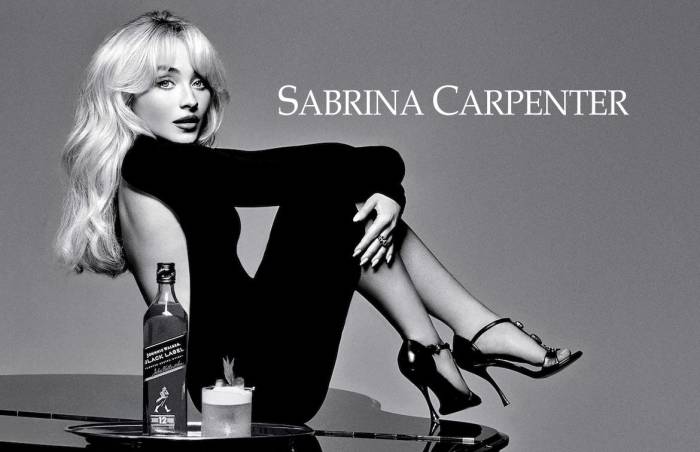Luxury spirits market surges as celebrity collaborations reshape branding and attract younger consumers
Brands focus on exclusivity, storytelling, and authenticity to drive growth amid rising demand for premium and culturally relevant products
2025-08-29

The luxury spirits market is experiencing significant changes as consumer preferences shift toward exclusivity, storytelling, and cultural relevance. This transformation is being driven by a combination of rising demand for premium products and the increasing influence of celebrity partnerships. Brands are moving beyond traditional endorsements, instead collaborating with celebrities to co-create products and campaigns that resonate with younger audiences.
A recent example of this trend is Johnnie Walker’s partnership with pop star Sabrina Carpenter, announced in August 2025. The collaboration coincides with Carpenter’s Short 'n Sweet tour and features custom cocktails such as the Black Label Manhattan. The campaign encourages fans to create their own Sabrina-inspired Johnnie Walker drinks, blending the brand’s heritage with Carpenter’s youthful image. This approach aims to attract Gen Z and millennial consumers who value creativity and self-expression.
Celebrity involvement in the spirits industry has evolved over the past decade. Figures like Ryan Reynolds, George Clooney, and Beyoncé have not only endorsed but also co-founded or rebranded entire product lines. Reynolds’ Aviation Gin became a $610 million business within three years, thanks in part to his active role in marketing and brand development. Clooney’s Casamigos Tequila was sold to Diageo for $1 billion after successfully positioning tequila as a premium spirit. These cases show that celebrities are now selling more than just a product—they are offering a lifestyle and a sense of belonging.
The broader market context supports this strategy. The global luxury spirits market was valued at $64.45 billion in 2024 and is projected to reach $192.34 billion by 2025. Growth is fueled by affluent consumers seeking unique experiences and high-quality craftsmanship. Celebrity-backed spirits have outperformed many traditional brands; for example, celebrity tequila brands grew by 16% in 2023, compared to the overall category’s 3% growth. Agave-based spirits like tequila and mezcal have become especially popular, with tequila recently surpassing whiskey as the second-most consumed spirit by value in the United States.
Brands are also responding to the rise of home mixology by offering limited-edition kits and products that replicate exclusive experiences at home. The Absolut and Kahlúa Espresso Martini Kit, inspired by Carpenter’s tour, is one such example. These offerings serve as both functional beverages and collectible items, appealing to consumers who want more than just a drink—they want a piece of culture.
However, not all celebrity partnerships guarantee success. The market remains highly competitive, and consumers are increasingly discerning about authenticity and quality. In 2023, celebrity gins saw a 1% decline even as the overall gin category grew by 4%. The end of David Beckham’s partnership with Haig Club whisky highlights the risks: without a strong product or genuine connection to the celebrity’s persona, even high-profile collaborations can falter.
Johnnie Walker appears to be addressing these challenges by closely aligning its campaign with Carpenter’s artistic identity. The focus on creative self-expression mirrors her music and public image, making the partnership feel authentic rather than purely commercial. This strategy is important at a time when transparency and emotional resonance are key factors in consumer decision-making.
For investors, these developments present new opportunities in the luxury spirits sector. Key indicators include sales performance of limited-edition products, levels of consumer engagement through social media and events, and shifts in market share among younger demographics. Brands that successfully integrate celebrities as co-creators—rather than just endorsers—are likely to capture greater loyalty from emerging consumer groups.
The Johnnie Walker-Sabrina Carpenter collaboration reflects a broader industry movement toward experience-driven consumption and premiumization. As luxury spirits continue to grow in popularity, brands that combine cultural relevance with product quality are expected to lead the market into its next phase of evolution.
Founded in 2007, Vinetur® is a registered trademark of VGSC S.L. with a long history in the wine industry.
VGSC, S.L. with VAT number B70255591 is a spanish company legally registered in the Commercial Register of the city of Santiago de Compostela, with registration number: Bulletin 181, Reference 356049 in Volume 13, Page 107, Section 6, Sheet 45028, Entry 2.
Email: [email protected]
Headquarters and offices located in Vilagarcia de Arousa, Spain.